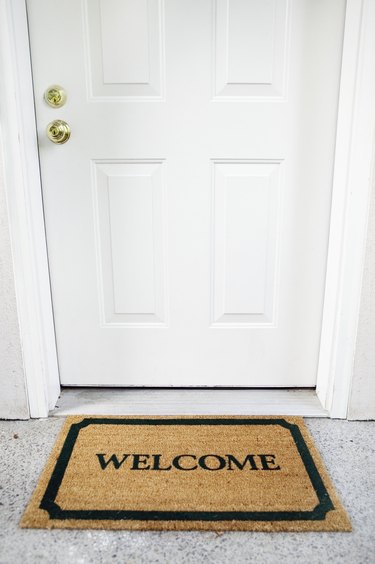
While early thresholds were made of wood or other natural materials, today's thresholds often include aluminum or vinyl as part of their makeup. These strips not only keep drafts, inclement weather, dust and insects at bay, they also protect the framing under the door.
General Information
Video of the Day
While there are a wide variety of thresholds available, they can be divided into four main categories: saddle, panic, interlocking and vinyl top. Within these categories are numerous variations to fit almost any door style, location and use.
Video of the Day
Saddle-Type Threshold
By far the most common type of threshold in use today, the saddle-type threshold is a raised piece of wood or other material placed between the bottom of the door and the floor. Often used with a door sweep -- a strip of rubber or metal fastened to the bottom of the door -- this threshold can be adapted to most doors. Many thresholds of this type have a metal strip running along the top of them for added protection. Specially designed saddle-type thresholds can keep fires from spreading.
Panic Thresholds
The panic threshold is found in public buildings. As its name implies, it is used with doors that swing outward in conjunction with a vertical rod that engages the device and allows the doors to open freely in panic situations. Many municipalities have building codes that govern this type of threshold.
Vinyl-Top Threshold
The vinyl-top threshold is very similar in style and design to the saddle-type. This type of threshold has a vinyl strip on its top to provide a stronger seal against weather and drafts. While it does provide more protection, it is rarely found in public buildings as it tends to wear out faster in high-traffic areas.
Interlocking Thresholds
Most commonly used with inward swinging doors exposed to weather such as those on motel rooms, interlocking thresholds have an L or J hook on the bottom of the door that locks into the threshold. While this arrangement does provide protection, rocks, ice and mud can get lodged in the hook, lessening its ability to seal well.